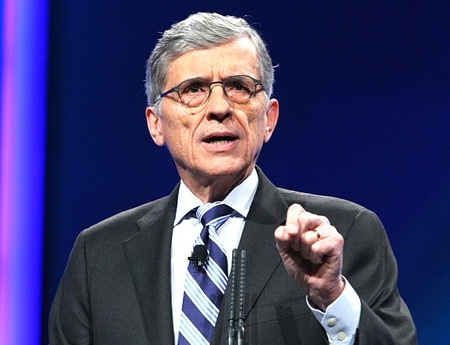Wheeler Circulates Charter-TWC Protective Orders

The smarter way to stay on top of broadcasting and cable industry. Sign up below
You are now subscribed
Your newsletter sign-up was successful
The FCC should be getting closer to soliciting public and industry comment--and launching its informal shot clock--on the proposed Charter-Time Warner Cable merger now that a protective order has been issued for information in the deal.
FCC chairman Tom Wheeler signaled at a Hill hearing this week that he had circulated for a commission-level vote an order responsive to a federal appeals court remand of the FCC's decision in a protective order to make program contract documents available to third parties in the Comcast-Time Warner Cable and AT&T-DirecTV mergers.
Sources say that comes in the form of a new protective order for documents in the proposed Charter-TWC deal, but an order that is also responsive to the court's issues with how the FCC handled the previous protective order.
Such orders set out how relevant, sensitive, documents submitted by the companies for FCC perusal are handled, including how they are made available to outside parties interested in the deal.
"We expect that we will issue a protective order in this proceeding to protect any competitively sensitive information that is filed in the record while still permitting a limited disclosure to allow commenters to review and use the information for purposes of this proceeding," the FCC said July 27 in accepting the Charter-TWC deal application, adding: "When we do so, we will issue a public notice setting forth the pleading cycle."
That protective order has now been circulated. While that is usually not a commission-level vote, in this case the order is also responsive to the court. When the order has been voted, that would pave the way for a pleading cycle.
The U.S. Court of Appeals for the D.C. Circuit, in vacating the AT&T-DirecTV and Comcast-TWC protective orders said the FCC was free to "clarify its current policy or to amend it," said the court. "It may, for instance, explain who must make the required 'persuasive showing'; what must be a 'necessary link in a chain of evidence'—the confidential information itself or third-party comments on it; and whether 'necessity' is the standard at all."
The smarter way to stay on top of broadcasting and cable industry. Sign up below
The Comcast-TWC deal fell through, and the FCC did not apply any new rationale to the AT&T-DirecTV documents. It remains to be seen whether it makes those arguments in the new protective order.
Contributing editor John Eggerton has been an editor and/or writer on media regulation, legislation and policy for over four decades, including covering the FCC, FTC, Congress, the major media trade associations, and the federal courts. In addition to Multichannel News and Broadcasting + Cable, his work has appeared in Radio World, TV Technology, TV Fax, This Week in Consumer Electronics, Variety and the Encyclopedia Britannica.

